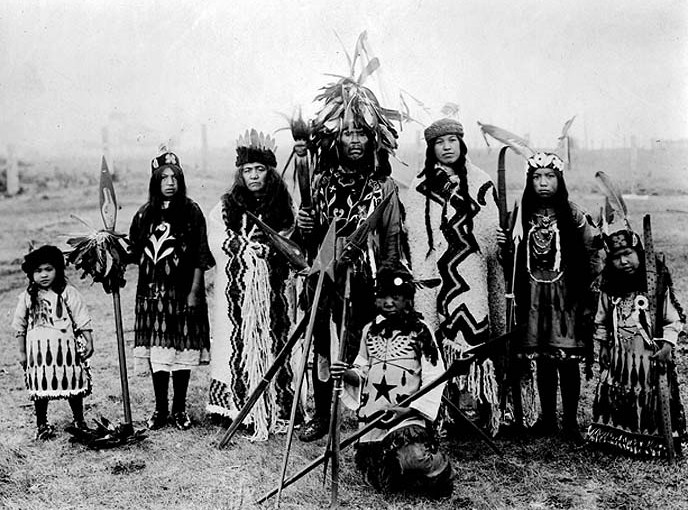It’s important to understand that before the state of Washington could exist, a treaty between two sovereign nations had to be signed. These treaties are the supreme law of the land and in Washington State, many cities have begun acknowledging Treaty Day as a day of mourning the pain of broken promises that still exists today.
On January 22, 1855, the Treaty of Point Elliott was signed by 74 leaders of more than 11 tribes to create a government-to-government relationship with the United States. This included the Lhaq’temish, who have been here since time immemorial.
“The Earth is the mother of all people, and all people should have equal rights upon it.” — John Trudell
This treaty reserved the rights of the Lhaq’temish to fish at their “usual and accustomed places.” But by the end of the 1800s, Lummi reef nets had disappeared from their historical fishing grounds after being pushed out by salmon traps and adverse court rulings.
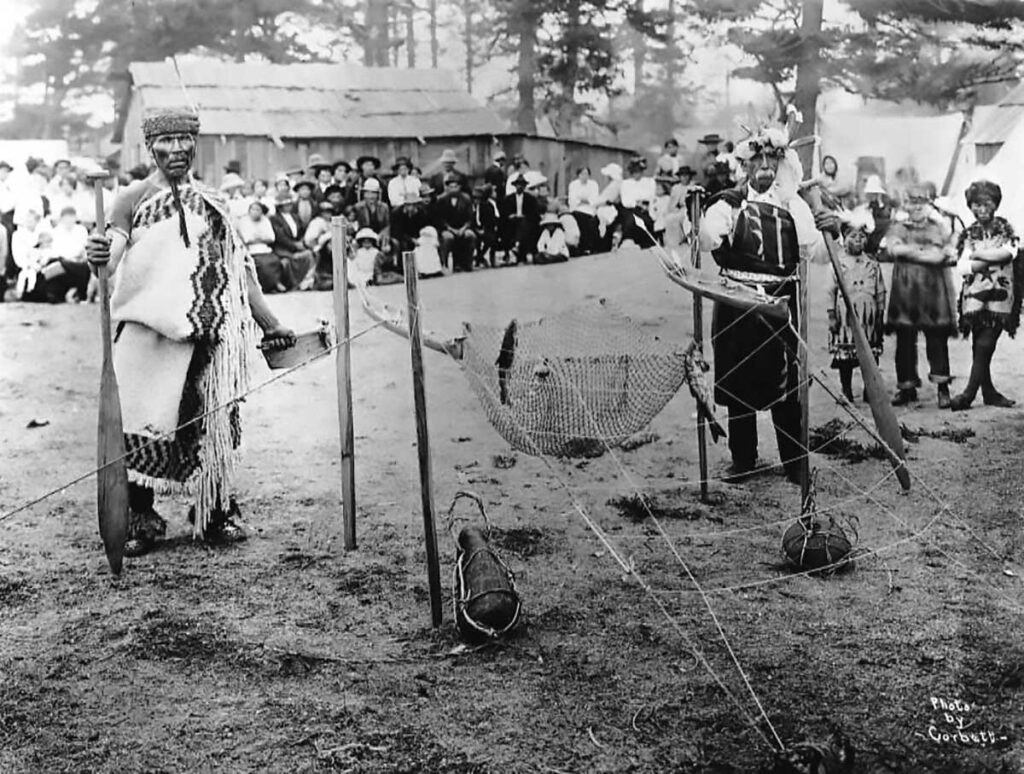
This photo shows Frank Hillaire on the left and Tom Squiqui to the right in a reef net model demonstration in support of a 1914 court case.
By 1915 Washington made it an offense for Natives to fish outside their reservation without a license. And since the state did not recognize tribal members as citizens, Lummi people could not get fishing licenses. This meant Village Point—one of the greatest traditional salmon fishing places in the Salish Sea—was off limits to the Lummi Nation.
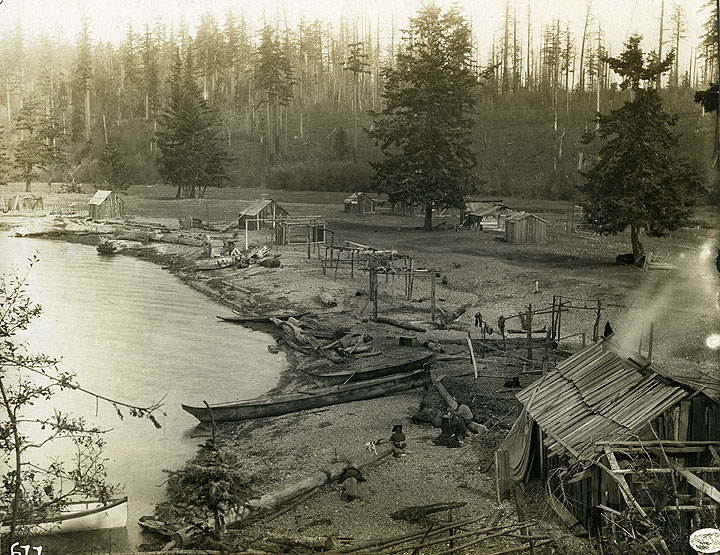
Village Point at an unknown date
In their place, large salmon traps and canneries appeared, but when those same traps were outlawed in 1935, local non-Indigenous fishermen hired Lummi fisherman to learn the art of the reef net.
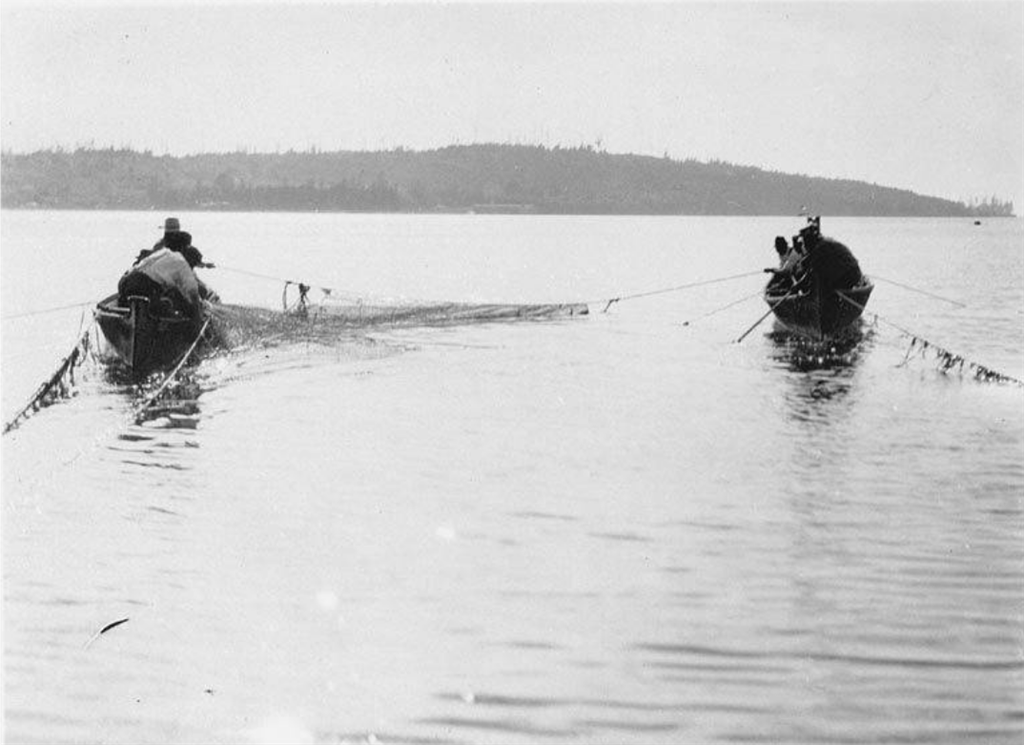
Lummi reefnetters setting net in the 1930s.
The struggle for Indigenous fishing rights (among other issues) has been a long and arduous one, including the 1960’s “fish-in” protests and the 1974 Boldt decision that reserved 50% of the fish harvest for Native fishers.
To this day, treaty promises made by the United States government to the Lhaq’temish over 170 years ago have been continually broken and…
“Without salmon, we’re stripped. We can’t exercise what’s in our DNA.” — Phillip Williams
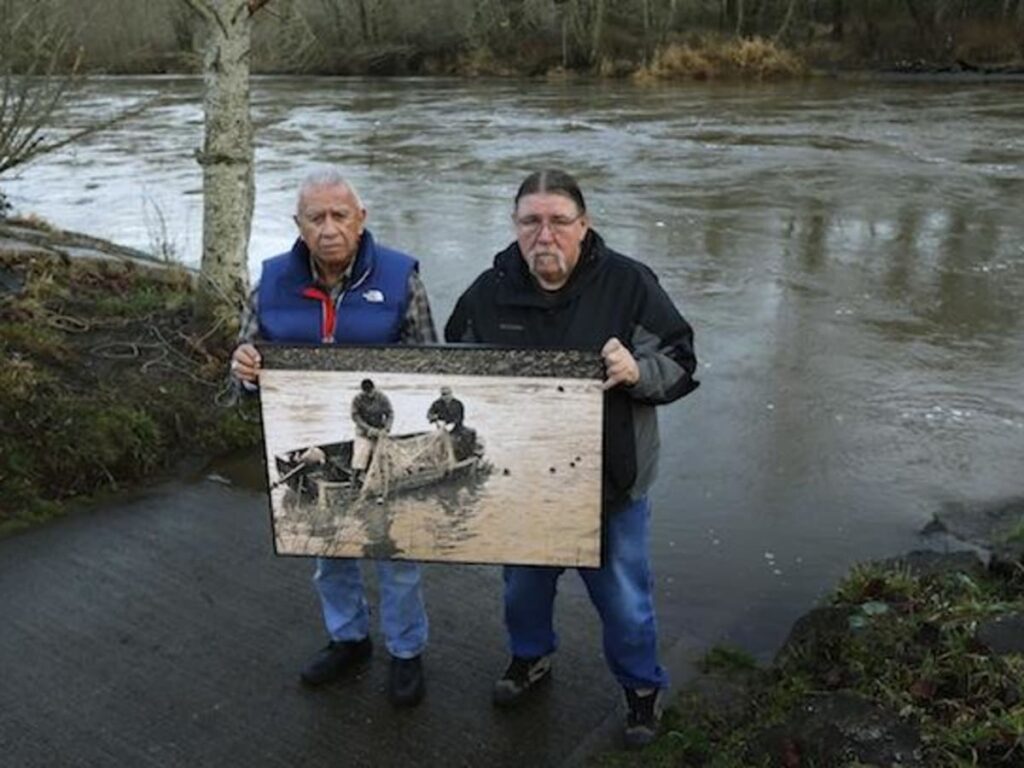
Billy Frank Jr. and Ted S. Warren hold up a photo of themselves during the Fish Wars.
So today, we recognize the fight taken on by our ancestors, and continued by so many of you around us, for recognition and fulfilled promises. Thank you to those that speak up, stand on the front lines, create art, who carry on ceremonies, and raise the next generation of tiny fighters — you are not forgotten.
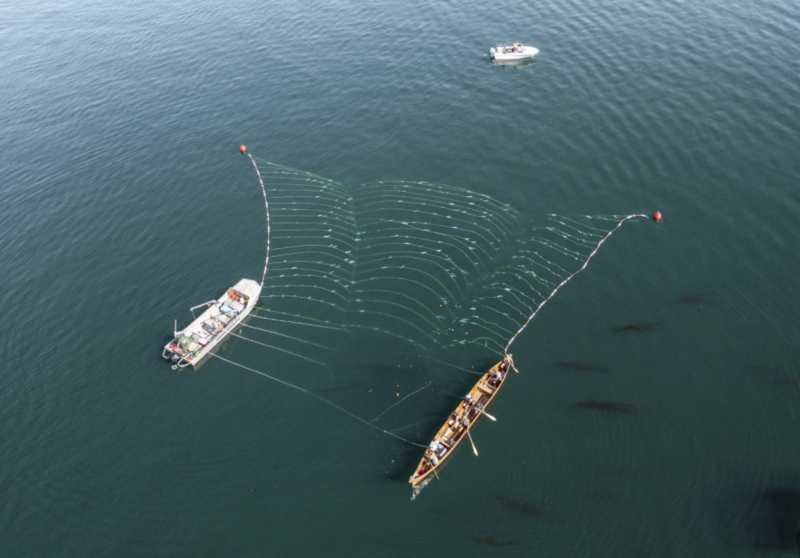
A revitalization of treaty rights through traditional reef net fishing via. the Youth Reef Net Project
“We the tribal people have standing, and it is up to the people to uphold justice. That means that law enforcement and the military’s first responsibility is to protect the tribal people of this land. And we want to remind you American and Canadian citizens that you are still our guests here and we are still your hosts.” — Beau Dick
If you’d like to show off your support for local Treaty Rights in your area, we have a line of “Honor the Treaty” earrings that will do just the trick!
Sources:
https://depts.washington.edu/civilr/fish-ins.htm
https://www.seattletimes.com/opinion/dead-salmon-climate-change-and-northwest-dams/
https://www.whatcommuseum.org/explore/collections/view-images/
https://www.duwamishtribe.org/treaty-of-point-elliott
https://goia.wa.gov/tribal-government/treaty-point-elliott-1855
https://www.lummi-island.com/stories/red-road-dc-totem
https://drive.google.com/file/d/17uy8aW84iMjaB5lRhUfnSJeydg2ECq74/view
